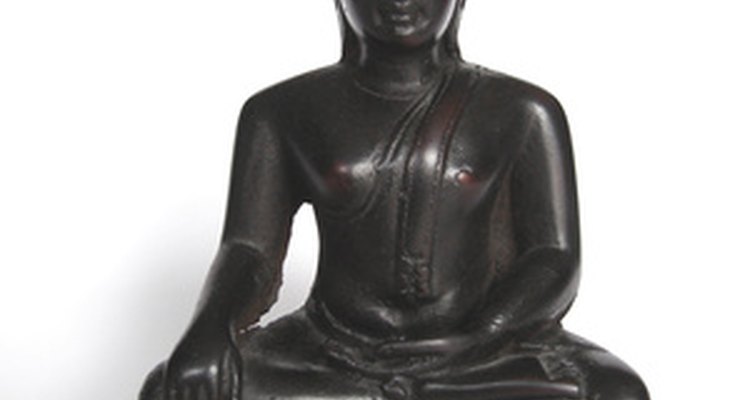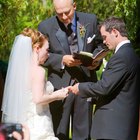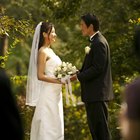
Buddhism is often considered a way of life and a state of mind, rather than a religion. In Buddhism, marriage is not a religious sacrament, but a personal decision. This idea is rooted in the beliefs of the founder of Buddhism, the Buddha, who felt marriage is a partnership between two individuals holding deep, mutual respect for one another.
Place and Time
Although Buddhist weddings often take place in temples, they can be held in any venue. Some couples choose to hold their Buddhist wedding at home, according to the Our Wedding Day.com wedding resource website. Modern Buddhist weddings may take place on any date, at any time, without meeting with a monk in advance or performing a wedding rehearsal. This is contrary to earlier Buddhist traditions which required the couple to meet with a monk beforehand to determine an appropriate wedding time through astrology, according to the website.
Guests
Since Buddhist weddings are considered social rather than religious affairs, the bride and groom and their families can choose to invite anyone, of any faith. Guests are asked to be respectful of Buddhists traditions, whether the ceremony is held in a temple or a private venue, according to Confetti, a wedding planning website.
Attire
The bride and groom generally dress in semi-formal or formal attire, according to Confetti. The bride usually wears a dress and the groom usually wears a suit. The bride and groom’s attire is often influenced by the traditional wedding attire of the country in which the bride and groom live. For example, an American bride practicing Buddhism may choose to wear a traditional white wedding gown.
Guests are generally allowed to wear whatever attire the desire, but are asked to keep clothing modest and tasteful. Clothing should not be too revealing, according to Confetti.
Ceremony
If the ceremony is held in a temple, shoes must be removed before entering, Our Wedding Day.com explains. While in the shrine, the soles of the feet should never point at an image of the Buddha or an official performing the ceremony, according to Bella Online. Guests should turn off their cell phones, to avoid disrupting the ceremony, but may take photos or video.
Guests do not participate in blessings or chanting during the ceremony, according to Confetti. Traditionally, a monk performs the blessings and recites sacred Buddhist passages. Generally, there is no prepared music or organist. However, since Buddhism practices acceptance of all cultures and religions, the bride and groom are free to alter the wedding ceremony as they wish, Our Wedding Day.com explains.
Considerations
The ceremony usually lasts about 30 minutes. It is not appropriate to throw confetti, rice or birdseed following the ceremony, according to Confetti. A wedding reception with food and dancing usually follows the ceremony. There is no set order of events for the wedding reception, and like certain aspects of the ceremony, reception festivities are often based on cultural traditions, and are often designed around the bride and groom’s personal preferences.
Related Articles

Commitment Ceremony Etiquette

Wedding Etiquette for a Stepmother

How to Become a Nonreligious Wedding ...

Christian Wedding Prayers and Blessings

What a Minister Says at a Wedding

Colorado Law on Officiating a Wedding ...

How to Dress for a Bris Ceremony

How to Have a Covenant Marriage Ceremony

Bride & Groom Dress Etiquette for a ...

Methodist Wedding Ceremony Program

The Common Procedures of a Catholic ...

How to Hold a Mormon Ring Ceremony

The Meaning of a Flower Girl in a ...

What Can You Wear for a Hindu ...

Who Can Legally Perform a Wedding ...

How to Plan a Traditional Latin Mass ...

Groom's family wedding etiquette

Can You Have a Wedding Without ...

How to Have a Court House Wedding

How Can I Get Certified to Marry People?